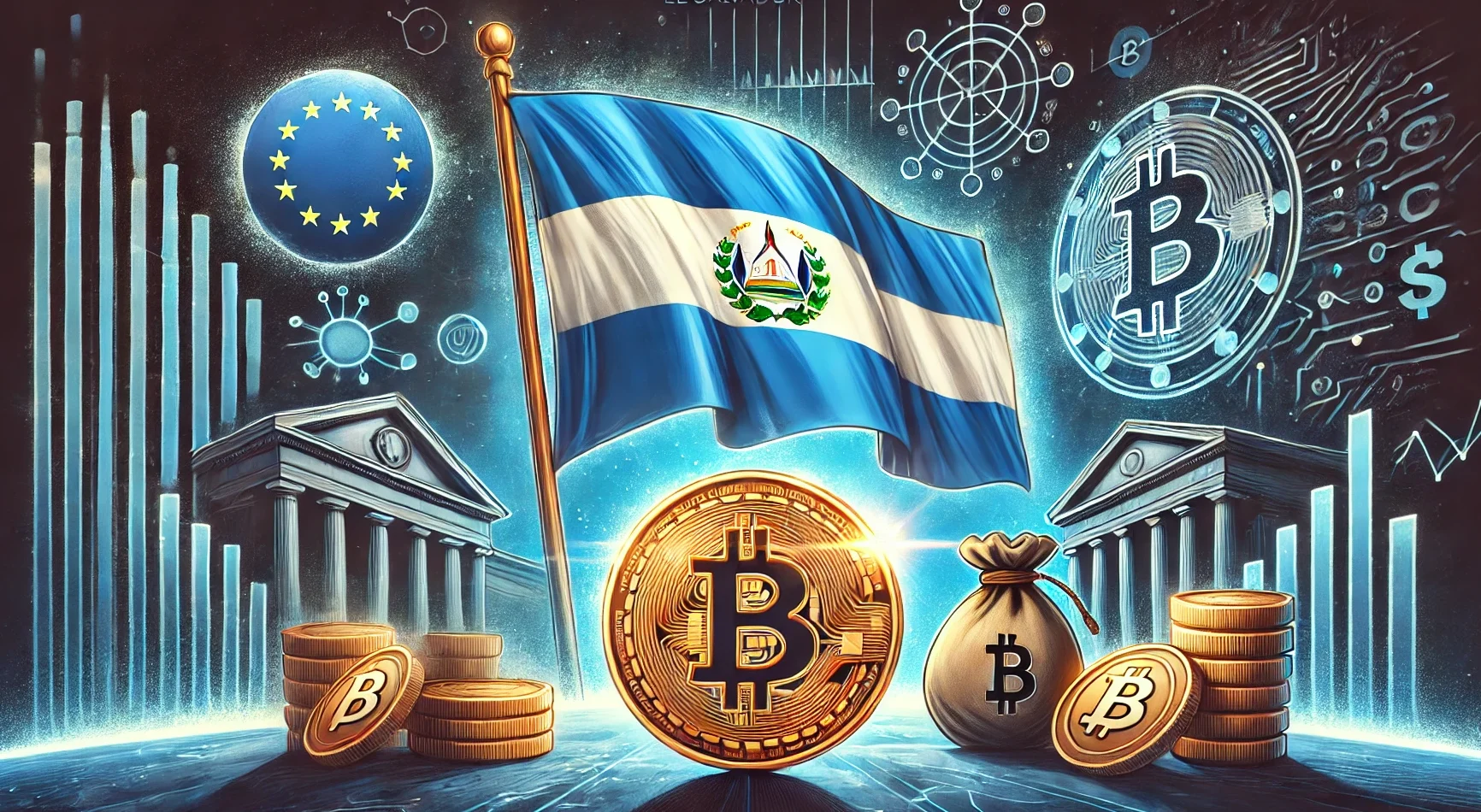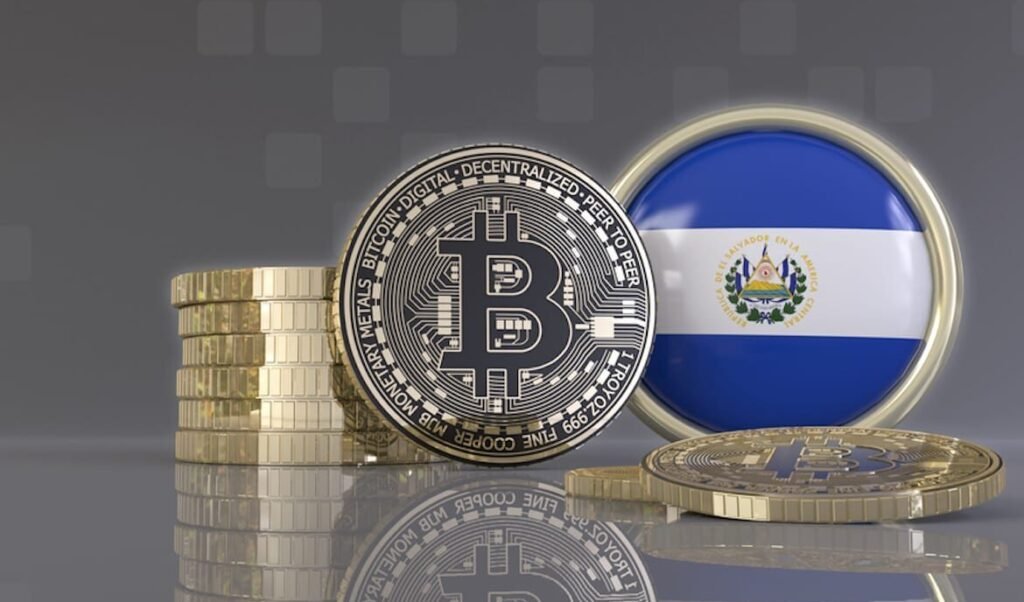A $1.4 billion loan arrangement with the International Monetary Fund (IMF) was announced. El Salvador plans to reduce its cryptocurrency purchases, but the country remains committed to holding onto Bitcoin. During a live interview at Web Summit in Rio de Janeiro, Economy Minister Maria Luisa Hayem made the affirmation. This demonstrates that Bitcoin remains crucial to the country’s future economic strategy.
Bitcoin on El Salvador’s Economy
As Hayem put it, “El Salvador’s commitment to Bitcoin remains strong.” This statement highlights President Nayib Bukele’s continued dedication to amassing digital assets. The government’s position on Bitcoin remains unchanged, despite the International Monetary Fund’s (IMF) efforts. El Salvador views Bitcoin as crucial to its financial future, as evidenced by its ongoing investment in the cryptocurrency, despite the country’s ongoing engagement with the International Monetary Fund (IMF).
El Salvador’s Bitcoin Move
El Salvador gained international recognition in 2021 for becoming the first nation to adopt Bitcoin as a legal tender. Traditional financial sectors were very critical of the decision, whereas bitcoin supporters were very pleased with it. Investors worried about El Salvador’s financial stability were reassured by the IMF’s requirements, which included fiscal discipline and lowering the country’s reliance on Bitcoin.
El Salvador continues to pursue its Bitcoin policy, despite the influence of the International Monetary Fund (IMF). The country’s Bitcoin Office is updating the public on recent cryptocurrency purchases, indicating that the accumulation of Bitcoin remains strong. Despite criticism from outside sources, the government maintains its conviction that Bitcoin can spur innovation and economic progress.
El Salvador’s Bitcoin Leap
El Salvador’s historic decision to accept Bitcoin as legal cash was a remarkable development. As such, it was a daring step toward incorporating Bitcoin into the national financial system. Businesses in the country now have the option to accept Bitcoin, despite initial reluctance, thanks to the establishment of a legal framework. The goal of this wiggle room was to strike a balance between corporate needs and the broader objectives of expanding access to financial services and fostering innovation.
Many in the Bitcoin community view this as a positive development toward greater control over one’s own money, particularly in areas where conventional banking options remain scarce. A chance to rethink the country’s monetary system, storage, and transactions has presented itself to El Salvador in the form of Bitcoin.
El Salvador IMF Deal vs Bitcoin
El Salvador’s $1.4 billion IMF loan shows its commitment to financial stability. El Salvador had to strengthen its fiscal discipline and reduce its dependence on Bitcoin to secure the loan. The administration has insisted that Bitcoin will continue to play an important role in its economic agenda, regardless of these conditions.

El Salvador is resolute in its pursuit of financial modernization, as evidenced by its ongoing accumulation of Bitcoin, despite the IMF’s valid suggestions. El Salvador remains one of the few countries in the world that has fully adopted Bitcoin as a legal tender. The government and private sectors are collaborating on cryptocurrency plans.
El Salvador’s Bitcoin vs Portugal’s Crypto Model
El Salvador must now decide how to reconcile its historic acceptance of Bitcoin with the financial commitments demanded by the IMF. While maintaining a healthy and stable financial system, the nation must oversee its crypto assets.
With its small GDP, Portugal is a good example for other nations to follow. The incorporation of cryptocurrencies into their financial systems. There are benefits and drawbacks to this transition, and the focus is currently on the nation’s ability to deal with the demands of innovation and global finance.
El Salvador’s Bitcoin Future
El Salvador’s support for Bitcoin has not wavered in the face of persistent opposition. With the support of corporate and public sector initiatives, the government is committed to establishing a robust crypto ecosystem. El Salvador plans to become a global leader in cryptocurrency by promoting blockchain technology and developing Bitcoin-related infrastructure.
The world will be watching El Salvador with bated breath as the country reimagines and innovates. The Role of Cryptocurrencies in National Economies. The country’s Bitcoin experiment may prompt other countries to consider implementing similar regulations, potentially altering the global financial landscape.
Conclusion
The world is watching El Salvador’s Bitcoin policy because of its audacity, which it has maintained despite the IMF’s demands. The risks are obvious, especially given the dramatic fluctuations in Bitcoin’s value. However, the country’s steadfast dedication to innovation may inspire others to follow suit. The world will be watching to see if this innovative approach can be actualized. Its goals as a country attempt to reconcile its fiscal responsibilities with its Bitcoin aspirations.
To understand how El Salvador is managing its finances in this unusual environment, it is crucial to stay informed about the latest developments. We do not yet know how Bitcoin’s trajectory in El Salvador will impact the global economy.

